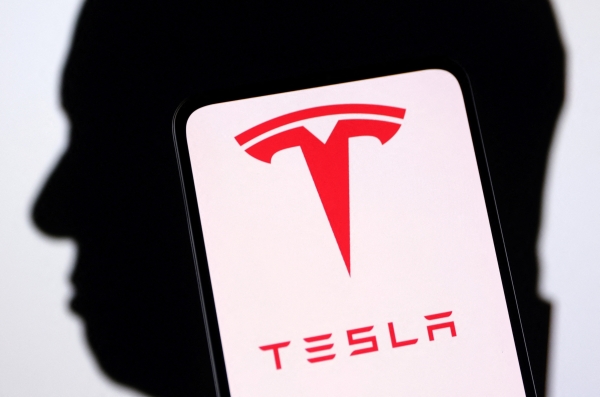Latest News
Tesla (TSLA.O), opens new tab faces a watershed moment on Thursday when CEO Elon Musk takes the stage at the Warner Bros Hollywood studio to unveil much-delayed plans for a robotaxi, a project that has reignited the electric vehicle maker's stock, despite cooling expectations for EV growth.
Musk has said Tesla's robotaxi product - called a Cybercab - will be a new model of vehicle that can drive itself and work on a Tesla ride-hailing platform. Tesla also will allow owners to make money off their cars by putting them on the ride-hailing network as autonomous cabs, which he has called a "combination of Airbnb and Uber."
Advertisement · Scroll to continue
Tesla's relies on cameras and artificial intelligence to drive current cars, with driver supervision but without the costly additional hardware associated with radar systems and lidar technology that other robotaxi players use.
Musk expects that improving this technology will let him crack a still-nascent and tightly regulated industry that has resulted in billions of dollars in losses for others.
Advertisement · Scroll to continue
Investors, attracted by Musk's estimate that Tesla's robotaxi business could drive the company's valuation to $5 trillion from $750 billion now, want to see a prototype and learn how quickly Musk can mass-produce it, at a profit. They want to understand regulatory hurdles and how FSD, still categorized as a type of partial automation, can become safer than a human driver.
"They need to get going because this has been sort of discussed, rumored, talked about and announced in various forms for a while," said Elliot Johnson, chief investment officer at Evolve ETFs, which manages investments in Tesla. He does not expect anything announced on Thursday to have a financial impact for one to two years.
Musk said in 2019 he was "very confident" the company would have operational robotaxis by the next year. This year he shelved plans for a new, affordable vehicle in a sharp pivot to robotaxis. Tesla "should be thought of as an AI robotics company," not a carmaker, he said.
Few observers, if any, expect a fully functioning product.
"We believe the robotaxi event will be long on vision, and short on immediate deliverables or incremental revenue drivers," Bernstein analyst Toni Sacconaghi said in a research note. "The company has a track record - particularly in FSD - of being overly optimistic and there is significant devil in the details."
Tesla could also give specifics on cheaper versions of its current lineup as well as update investors on its humanoid robots, Optimus, he said.
HIGH EXPECTATIONS AND RISK
Hopes are high ahead of the event - called "We, Robot" in an apparent nod to the "I, Robot" collection of science-fiction short stories by American writer Isaac Asimov.
Tesla shares - hurt in recent years by worries EV rivals with cheaper and fresher models are eating in to its market share - are up nearly 50% since April when Musk announced the shift to robotaxis. Still, expectations of volatility in Tesla's stock over the next 30 days are close to a two-year high, driven primarily by uncertainties around the robotaxi event, according to options data from Trade Alert.
Bringing self-driving vehicles to market has proven time-consuming and costly for other companies.
Alphabet's (GOOGL.O), opens new tab Waymo is the only U.S. firm operating uncrewed robotaxis that collect fares. Others still in the race include General Motors' (GM.N), opens new tab Cruise - re-launching robotaxis with a safety driver after an accident last fall forced it to halt operations - and Amazon's (AMZN.O), opens new tab Zoox, which is expanding testing of its self-driving taxis that come without steering wheels and pedals.
To keep Tesla's costs in check, Musk has decided to steer clear of sensors beyond cameras and he could potentially develop the first generation of Cybercab on its existing platform that runs the Model 3 and the Model Y.
Tesla also has learnings from the data it collects from millions of vehicles.
But investors and analysts said leapfrogging to high levels of automation that do not require driver supervision from its current FSD technology - which has come under increased regulatory and legal scrutiny with at least two fatal accidents - will not be easy.
"We think this is still several years away and numerous technological hurdles, safety tests, and regulatory approvals are still standing in the way," CFRA Research analyst Garrett Nelson said, highlighting "an increasing disconnect between the stock's lofty valuation and the reality that Tesla's earnings growth has hit a wall."
[Reuters]


